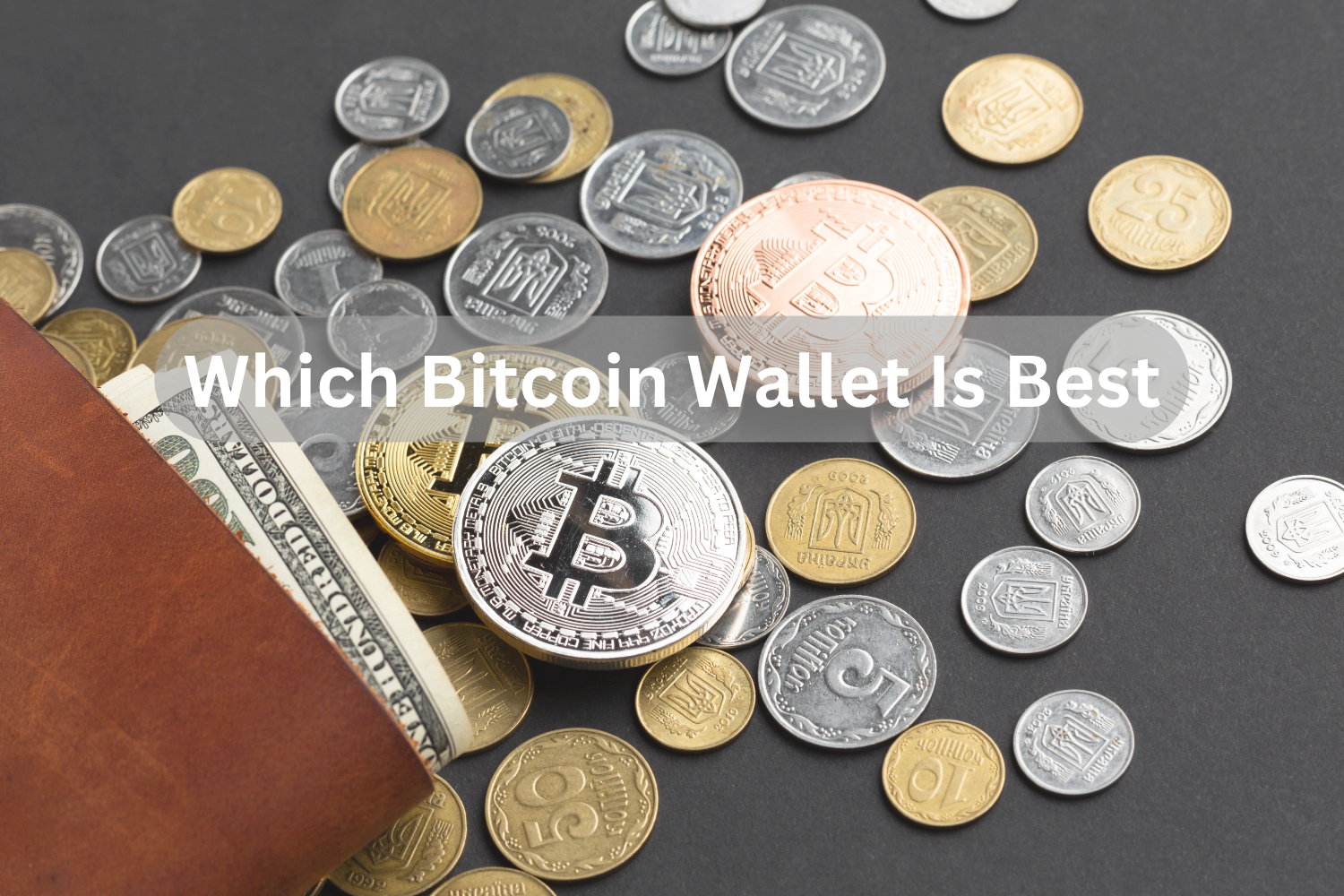When diving into the world of cryptocurrencies, one of the first questions you’ll encounter is: What Bitcoin wallet should I be using? Choosing the right wallet amongst the wallets available can get overwhelming. In this ultimate guide, I’m going to break it all down for you so you can make a decision with confidence.
Introduction to Bitcoin Wallets
Bitcoin wallets are indispensable tools for anyone navigating the cryptocurrency space. But what exactly are they, and why are they so crucial?
What is a Bitcoin Wallet?
A Bitcoin wallet is a digital means to store and manage your Bitcoin. The Bitcoin doesn’t actually live in Binance, it lives on the blockchain in the form of Bitcoin, but your private keys, that you use to access and control your funds, lives in Binance. It’s like your keyring for your digital safe. Your Bitcoin cannot be spent or proven to be yours without the private keys.
Why Do You Need a Bitcoin Wallet?
Bitcoin wallet is not just a storage tool, it is your entry to the decentralized world. Regardless if you’re buying, selling or trading Bitcoin, your wallet stores your funds securely. Additionally, wallets enable you to:
- Safeguard your Bitcoin from theft and hacks.
- Store funds offline for extra security.
- Send and receive Bitcoin efficiently.
Without a wallet, your ability to interact with Bitcoin is severely limited.
Types of Bitcoin Wallets
There are many different Bitcoin wallets, in all shapes and sizes. Let’s explore the two main categories: hot wallets and cold wallets.
Hot Wallets
Hot wallets are connected to the internet, making them ideal for frequent transactions but potentially more vulnerable to hacking.
Desktop Wallets
Software programs that will be installed on your computer are Desktop Wallets. Yet they provide robust features and control at the cost of trusting your computer’s security. Examples include:
- Electrum: Lightweight and fast, suitable for advanced users.
- Exodus: User-friendly with a sleek design, perfect for beginners.
Mobile Wallets
A mobile wallet is a smartphone app where you can hold your Bitcoin wherever you go. Quick transactions are what allow these wallets to shine. Popular options include:
- Trust Wallet: A secure and intuitive option for mobile users.
- Mycelium: Known for its advanced features and high security.
Cold Wallets
Cold wallets store your Bitcoin offline, offering unmatched security against online threats.
Hardware Wallets
Physical devices referred to as hardware wallets store private keys securely. They are considered the safest option. Notable examples:
- Ledger Nano X: Compact, portable, and highly secure.
- Trezor Model T: Known for its intuitive interface and advanced security features.
Paper Wallets
A paper wallet is when you have your private and public keys printed on paper. It is cost effective if handled with care to not lose or damage it.
Factors to Consider When Choosing a Bitcoin Wallet
Since a lot of factors depend on your needs, preferences and priorities, you should be very careful choosing the perfect Bitcoin wallet. Here’s what you should evaluate:
Security Features
Security is non-negotiable. Look for features such as:
- Two-Factor Authentication (2FA) to protect against unauthorized access.
- Multi-signature support, which requires multiple approvals for a transaction.
- Advanced encryption methods to secure your private keys.
User Experience and Accessibility
If you’ve never touched cryptocurrency before, a wallet should be easy to use. It is intuitive, and if things have an intuitive interface, they can make a big difference.
Compatibility with Devices
Make sure that your wallet supports your habit system (Windows, macOS, Android, iOS) and the hardware you have (desktop, smartphone, or hardware wallet).
Backup and Recovery Options
Devices fail, and accidents occur. Choose wallets that will offer recovery phrases or have options for a backup when you need to restore access to your funds.
Cost
For instance, software wallets are free, but hardware wallets cost a total of from $50 to $200. Select according to yours budget and security needs.
Top Bitcoin Wallets in 2024
To simplify your search, here are the top Bitcoin wallets tailored for various needs:
Best Overall: Ledger Nano X
Ledger Nano X is a hardware wallet focused on security and multi currency capabilities. You can manage your funds from a smartphone thanks to its Bluetooth functionality.
Best for Beginners: Exodus
Exodus combines a user-friendly interface with a built-in exchange, making it ideal for newcomers.
Most Secure: Trezor Model T
For those wanting extra security, Trezor Model T is a hardware wallet with advance security feature, including passphrase support.
Best Mobile Wallet: Trust Wallet
Trust Wallet offers simplicity, security, and support for multiple cryptocurrencies. It’s perfect for on-the-go users.
Best Open-Source Wallet: Electrum
Electrum is lightweight and highly customizable, making it a favorite among advanced users.
How to Set Up a Bitcoin Wallet
Setting up a Bitcoin wallet varies depending on the type. Here’s a detailed guide:
Steps for Hot Wallet Setup
- Download the wallet app or software from an official source.
- Install and open the application.
- Create a new wallet, generating a unique recovery phrase.
- Secure your recovery phrase by writing it down and storing it safely.
- Set a strong password.
Steps for Cold Wallet Setup
- Purchase a hardware wallet like Ledger or Trezor from a trusted vendor.
- Connect the device to your computer and follow the setup instructions.
- Generate a recovery phrase and store it in a safe, fireproof location.
- Install the companion app to manage your Bitcoin.
Pros and Cons of Using Bitcoin Wallets
Advantages
- Control: You own your funds, unlike with exchanges.
- Security: Cold wallets provide unmatched protection against hacking.
- Flexibility: Options to suit every user, from beginners to experts.
Disadvantages
- Complexity: Some wallets can be intimidating for first-timers.
- Risk of Loss: Losing your private keys means losing access to your Bitcoin.
- Cost: Hardware wallets can be expensive.
Tips for Keeping Your Bitcoin Safe
- Use Two-Factor Authentication (2FA): Adds an extra layer of security.
- Avoid Public Wi-Fi for Transactions: Hackers can intercept data on unsecured networks.
- Regularly Update Your Wallet Software: Updates patch vulnerabilities.
- Backup Your Recovery Phrase: Store it in multiple secure locations.
- Consider a Hardware Wallet: For long-term storage, nothing beats cold wallets.
Conclusion
There is no best Bitcoin wallet — it depends on what your wallet needs. Cold wallets give you the best security, while hot wallets are convenient. One of the things that you want to make sure of when you are considering taking care of your bitcoin is that you understand the different types, evaluate features and let yourself see the top ones.
Frequently Asked Questions
Q: Can I use multiple Bitcoin wallets?
A: Yes, many users combine hot wallets for daily use with cold wallets for secure storage.
Q: What happens if I lose my wallet?
A: You can restore your funds using the recovery phrase provided during setup.
Q: Are Bitcoin wallets anonymous?
A: While Bitcoin transactions aren’t directly tied to your identity, blockchain activity is publicly visible.
Q: Can I store other cryptocurrencies in a Bitcoin wallet?
A: Many wallets support multiple cryptocurrencies, but always verify compatibility first.
Q: Is it safe to use free Bitcoin wallets?
A: Yes, but only if you choose a reputable provider and follow security best practices.





